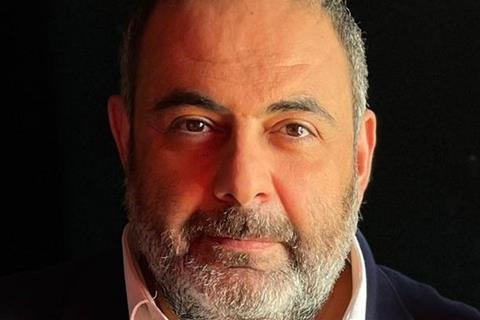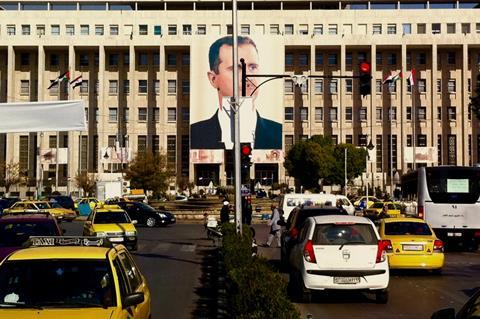
Syria-born, France-raised filmmaker Anas Khalaf is not letting either a war or a pandemic dent his indomitable spirit as his second feature The Photographer is showcased as a development project at the Doha film Institute (DFI)’s Qumra event this year.
Khalaf and his French wife and filmmaking partner Rana Kazkaz and their two children made Qatar their home after they left Damascus amid the Syrian conflict in 2012. Through their joint produciton company Synéastes Films they co-directed five short films. Mare Nostrum, about a Syrian father and a decision that puts his daughter in danger, was the one that broke through, screening at Sundance and Dubai among numerous other festivals, and receiving more than 30 awards.
It led to the duo’s first feature The Translator, set in the early days of the Syrian revolution, and starring Ziad Bakri a man who returns home from political exile in search of his missing brother. It took several years to get off the ground but finally shot in 2019 as a co-production with France’s Georges Films, and with backing from the Doha Film Institute, among others.
But timing was against them: The film was ready in March 2020,
“That was a total disaster because of Covid,” sighs Khalaf. “It came out at the wrong time for festivals and people who understandably had other worries. Many festivals were cancelled, distribution got problematic between online VoD versus theatres which were closed for a long time.”
However, The Translator was selected for the Industry Selects strand at the online Toronto Intenational FIlm Festival in 2020 before making its official premiere at the physical Tallinn Black Nights film festival later that year and securing a US distribution deal with Los Angeles-based Launch Releasing.
Busy times
As the dust settled amid Covid and the ongoing conflict in Syria, Khalaf and Kazkaz mulled their next cinematic move together. As Kazkaz chose to focus on her own personal project, Khalaf decided to direct a feature called Love-45. It is co-written by Kazkaz. “It is a more light-hearted and less dark story,” Khalaf explains.
At the same time he is also developing The Photographer, the second in a planned trilogy of hard-hitting Syrian films following The Translator.
The Photographer has secured development funding from the DFI and will be produced by Ossama Bawardi, the Jordanian co-producer on The Translator, via Bawardi’s Philistine Films. Khalaf and Bawardi are talking to potential co-producers in Europe, particularly France and Germany and to private investors during Qumra.

The film is a fictionalised account of the real-life story of a Syrian military defector code-named Caesar who smuggled more than 50,000 photographs out of Syria of tortured, killed Syrians who were demonstrating against Assad’s regime. Caesar took them to the US government to highlight the Assad-backed crimes against humanity and is now in hiding with a bounty on his head.
But first, Love-45. “After The Translator, and before The Photographer, it is a good idea to take time to breathe and have a break between the heavier topics,” smiles Khalaf. “Hopefully we’re going to be making Love-45 next spring 2023,” he says.
Now financing and casting, Khalaf is working with his longtime friend and French- Lebanese producer Tania El Khoury on the project.
Also an actor, Khalaf loves to appear on screen. He has written roles for himself in Love-45 and The Photographer. To date he’s largely played baddies – a Hamas chief of police in Gaza, an Iranian Russian agent, an ISIS boss or a nasty Syrian army general – and the role he’s written in for The Photographer is evil, “but with a lot of depth to help understand his motivations and where he comes from, how he ends up doing what he’s doing.”
Khalaf is planning to give himself a break in Love-45. “I start out as not a very nice guy, but then become better,” smiles Khalaf. “He needs to heal as he’s in a bad place. He discovers what he needs to do in order to feel better and be better in his life. It’s inspiring.”
Light relief indeed.

























No comments yet